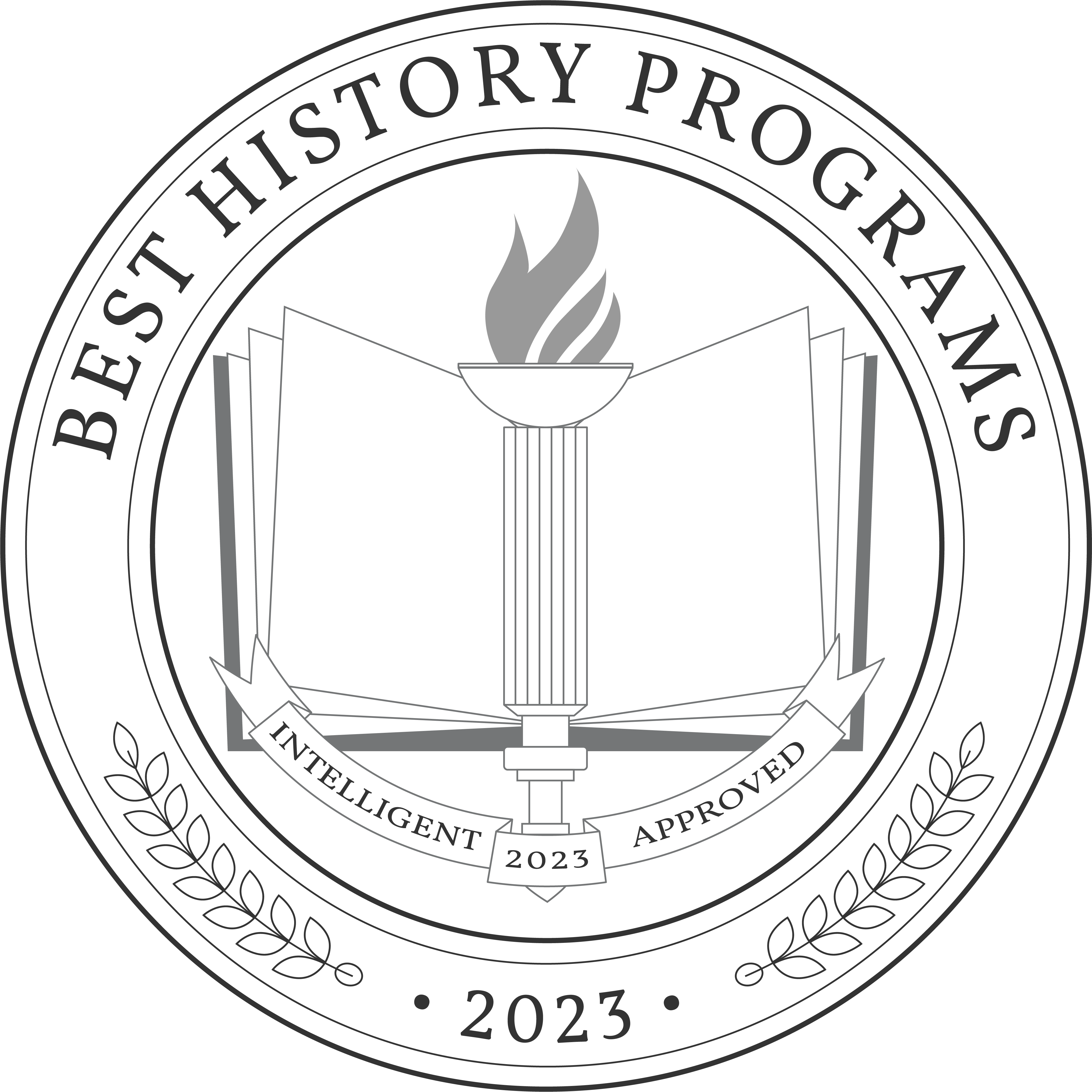Why This Matters
-
DEMAND FOR ARCHIVISTS AND CURATORS IS EXPECTED TO RISE BY 11%
Over the next decade, public and private organizations will depend on these workers to manage records and curate collections that meet the public’s growing interest in art, history, science, and technology.
-
HISTORIANS MAKE MORE THAN THE AVERAGE SALARY
With an average salary of $63,680, historians make $23,870 more than the average U.S. worker.
-
JOB GROWTH FOR HISTORIANS IS EXPECTED TO INCREASE BY 3%
Over the next decade, museums, governmental agencies, historical societies, and nonprofits will continue to depend on the research and critical thinking abilities of historians.
Our Research
This list covers undergraduate and graduate programs in history that prepare students for a broad range of careers. All programs include coursework aimed at improving writing, research, analysis, and communication skills. Degrees offered include bachelor of arts in history, bachelor of science in history, and master of arts in history. Students can choose from online, on-campus, and hybrid learning formats.
National and regional organizations accredit schools that uphold a high academic standard. Programs on this list are accredited by national accreditors, such as the Higher Learning Commission (HLC) and the National Association of Schools of Art and Design (NASAD). Regional accreditation comes from bodies such as the Southern Association of Colleges and Schools Commission on Colleges (SACSCC) and the Western Association of Schools and Colleges (WASC).
We evaluated each program on the basis of flexibility, faculty, course strength, cost, and reputation. Then we calculated the Intelligent Score for each program on a scale from 0 to 100. For a more extensive explanation, check out Our Ranking Methodology.
- 80 hours to write this article
- 208 universities and colleges we assessed
- 381 education programs we compared
The Top 50 History Degree Programs

Discover More Options
What You Should Know About This Degree
A degree in history can prepare students for many careers because of its broad curriculum rooted in research and analysis. When choosing a program of study, also consider a degree in political science. Both programs examine the past, present, and future through a critical lens and help develop communication skills and information synthesis. History programs allow students to cultivate a deep understanding of the past and use this knowledge to analyze the people it affects in the present. Political science specializes in government and policy and uses a political lens to contextualize world events.
For certain professions, graduates need to earn additional licenses or certifications. History graduates who wish to become teachers are required to obtain a state-issued license. Certifications can demonstrate proficiency in a specialized field, such as genealogy or heritage interpretation. The Board for Certification of Genealogists (BCG) and the National Association for Interpretation (NAI) provide credentials for history majors that can increase job opportunities.
While the demand for historians is expected to grow at the same rate as other professions, graduates can use the skills they’ve acquired across numerous occupations, including public relations, business, and journalism.
What’s Next?
When considering history degree programs, ask yourself these questions:
- Am I eligible for this program? Bachelor’s programs in history accept students from a range of educational backgrounds. Most programs require students to have a minimum GPA and standardized test score. For graduate programs in history, students may be required to submit letters of recommendation and Graduate Record Exam (GRE) scores.
- How long does it take to complete this online degree? Four years of full-time study are generally required to complete an undergraduate degree in history. The programs on our list require between 40 and 180 credits to receive a bachelor of arts in history or bachelor of science in history. Master’s degree programs on our list require between 30 and 33 credits to graduate.
Each program has specific application deadlines and requirements, and all materials must be submitted by their due dates. Check with the school admission’s department for detailed application information.
Higher education requires a financial investment, and you should plan how you will cover these costs. Research scholarships, grants, and other financial aid opportunities that can help reduce the cost of your education.